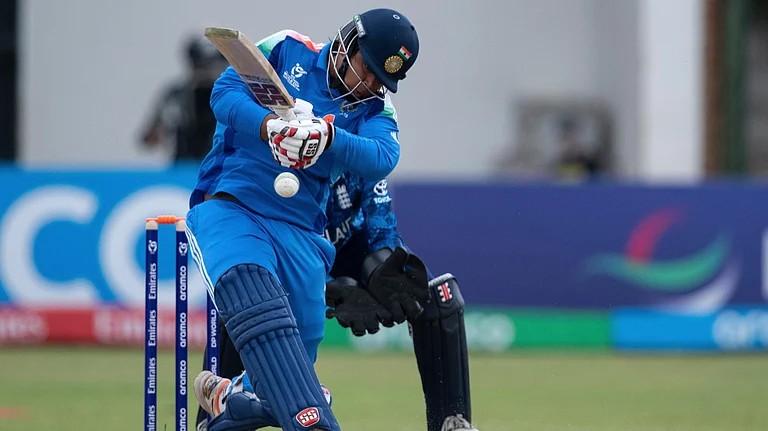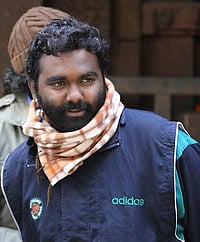The BJP’s promise to do away with Article 370, which gave special status to Jammu and Kashmir, was fulfilled in a matter of days, while the Valley remained under curfew and cut off from the rest of the world, with no phones or internet, former CMs detained and the media unable to function. Outlook spoke with former attorney-general Soli Sorabjee, former Lok Sabha secretary-general Subhash Kashyap, NALSAR University of Law vice chancellor Faizan Mustafa, and Supreme Court advocates Colin Gonsalves and Shadan Farasat about whether the government’s action would stand judicial scrutiny.
Q1: The way it was done, is it legally tenable?
Subhash Kashyap: Yes, it can be done under Article 370 itself because under 370(1), the central government can apply any provision of the Constitution to Jammu and Kashmir with the state government’s consent. And now the government of India is also the government of Jammu and Kashmir as it is under President’s rule.
Faizan Mustafa: There are big constitutional issues. Can the governor be called the state government? Can the legislative assembly be called the constituent assembly? Can you first use Article 370 to amend Article 367, and then use Article 367 to call the legislative assembly the constituent assembly? Then there is the matter of how the Instrument of Accession is to be interpreted. The constitutional questions are highly pertinent and would require an examination by the Supreme Court. But the matter, if it gets referred to the Constitution bench, will take about two-three years to dispose, and this whole issue will become redundant by then. Meanwhile, there will be elections for a Union territory assembly, and that assembly might pass whatever resolution the central government wants.
Colin Gonsalves: Article 370 of the Constitution can be amended by resorting to Article 368, which gives wide and general powers for amending any part. Article 370(3) is a temporary provision allowing for amendment of the Constitution by a Presidential notification. The temporariness of this article and this measure—i.e. Article 370(3)—lies in the fact that this extraordinary measure of amending the Constitution by a Presidential notification would end the moment the constituent assembly ceases to exist. Therefore, once it ceases to exist, this extraordinary measure for amendment also ceases to exist. Therefore, the notification of the government is unconstitutional.
Shadan Farasat: Article 367 can be amended by a Presidential order insofar as it applies to the state of Jammu and Kashmir. But the government cannot try to amend Article 370 by using Article 367. Article 370 cannot be amended by a Presidential order. You cannot amend 370 because of Article 370(1)(c). The application of Article 370 and Article 1 of the Constitution is not through a Presidential order, but through Article 370 itself. 370(1)(d) goes on to say that aside from Article 1 and Article 370, you can apply it through a Presidential order with appropriate amendments etc, through an amendment in Article 367. Effectively, they are amending Article 370 by amending Article 367, which is not permissible. Otherwise, what was the meaning of Article 370? This could have been done in the 1970s if it could be done like this. They are amending Article 370 through a Presidential order, which is beyond the terms of 370 itself.
Q2: Was Article 370 a temporary provision unlike, say, Article 371?
SS: Yes.
SK: I think the Supreme Court did not exactly say that because the title of Article 370 itself calls it a temporary provision and, even if the SC says it is not temporary, I would not agree because the Constitution-makers clearly made a distinction between temporary and special provisions. If you see Article 371, its heading is ‘special provisions with regard to Nagaland’. If you see Article 370, its heading says ‘temporary provisions with respect to Jammu and Kashmir’. So the Constitution-makers deliberately distinguished between temporary and special. While there were some special provisions, there were temporary provisions also. It was a temporary provision for Jammu and Kashmir, not a special provision. If you look at Article 370 and Article 371, you will see the difference.
FM: When it was brought, it was temporary because by that time the constituent assembly of Kashmir had not been constituted, and it had not met. Because the constituent assembly of Kashmir may have taken a decision that they want to go to Pakistan, or they want to hold a plebiscite, they decided they want this kind of a special status, they endorsed Article 370 and said they wanted to be governed by it. So, how this Article 370 can now be amended—even though it says the President of India can modify it, and modify may mean even repeal—is a question that the court will determine. If the court says constituent assembly means constituent assembly, as the Justice Rohinton Nariman-led bench said in 2016 in the SBI case, then the amendment will be bad in law. And if it says that the constituent assembly is not there and its substitute is the legislative assembly, then it will be upheld. In addition, Article 370 does not use any time frame. If you look at Article 369, it specifically says ‘for five years’. For instance, the provision that English shall be the official language is for the first 15 years. If you look at the provision of reservation for SCs/STs in Parliament and assemblies, it was done for 10 years. These provisions are temporary. Article 370 was not temporary; even the SC has said so.
CG: The whole of Article 370 is a temporary measure.
Q3: Can the reorganisation of J&K take place without the state government’s approval?
SS: There is a need for more consultation with the people. Now, though, it is a fact of history.
SK: Yes and no. Yes, because the Constitution provides for the consent of the state government. And no, because there is no state government now. Because Jammu and Kashmir is under President’s rule, the government of India is the government of the state, and Parliament of India is its legislature. Moreover, it is an elected government, so it cannot be said there is no elected government. The elected government for J&K is Parliament of India. In fact, the leader of Opposition in the Rajya Sabha, Ghulam Nabi Azad, is a representative from J&K. So, it cannot be said there is no elected government.
CG: That’s the crux of the matter: Whether the state reorganisation can take place on the basis of a Presidential notification or whether it needs Parliament’s consent. Under Article 370(3), it cannot be done by a Presidential notification, it must be done by Parliament itself.
FM: Under Article 3, a bill to change the boundaries or name of the state, or bifurcation of the state, should be first referred by the President to the concerned legislative assembly for ascertaining its views. Here it could not be done due to the dissolution of the Jammu and Kashmir assembly. Under President’s rule, powers of the assembly are exercised by Parliament. Parliament exercised this power and a fresh Presidential order was issued on August 6 after referring to the resolution of Parliament. This may be in compliance with the text of the Constitution, but is certainly contrary to its spirit.
SF: There is no case in the history of the Indian Union where a new state has been formed by treating Parliament as a state legislature, during President’s rule. They are treating Parliament as state legislature for the purpose of reference. That can’t be done. It’s totally an abuse of the provisions of the Constitution. Under Article 3, you have to take the view of the state legislature. As of today, there is no legislature in the state of Jammu and Kashmir. Whenever there is President’s rule, if some bills have to be passed, Parliament exercises that power under proclamation of Article 356. So Parliament functions as a state legislature. But surely, when the proviso of Article 3 is itself a check on Parliament, then how can you treat that also as Parliament? Further, the text of Article 3 only permits reducing the territory of a state by converting part of a state into another state(s) or Union territory. However, it does not envisage reduction of the entire territory of a state into Union territories. India is a “Union of States” as per Article 1 and it will be reduced to a Union of Union Territories, if this is allowed.
Q4: Does the governor represent the will of the people?
SS: It is a grey area.
FM: No, definitely not. The governor represents the will of the central government. He is a nominee of the Centre. The Indian governors have proved to be agents of the Centre in the states; they have not shown their commitment to the Constitution, but to the party in power at the Centre. They certainly cannot be called representatives of the people as they are nominated, not elected.
CG: Not at all. If you look at the history of the Instrument of Accession, it was the constituent assembly and the state assembly whose concurrence would have to be taken. Certainly not the governor. The reason is that the Sadar-i-Riyasat was an elected member and the governor is not.
Q5: Can this Presidential order be challenged in court?
SS: Anyone can challenge it in court and it will be challenged.
SK: Every decision of the government and every law passed by Parliament is subject to judicial review. Anything and everything can be challenged in court.
FM: It’s a big constitutional change and will certainly be challenged. There are lawyers who challenge such things through poorly-drafted PILs. Their purpose is to get them rejected so that the government takes the stand that the court did not even hear this matter. It can also be challenged in any high court, so maybe it will first be challenged in the Jammu and Kashmir High Court initially. And subsequently in Supreme Court. But my gut feeling is that no immediate verdict will come in this case.
CG: Anyone can challenge it in the SC as it’s a matter of public interest. Any Kashmiri can challenge it too. Anyone in India concerned abbout the unity of the country can challenge it. I don’t know about what Pakistan can do, but it would be foolish for another country to try and interfere in India’s affairs, and particularly Pakistan. I want to put this very clearly. It would be foolish for anyone outside India to interfere in its affairs, particularly Pakistan.
Also Read


























